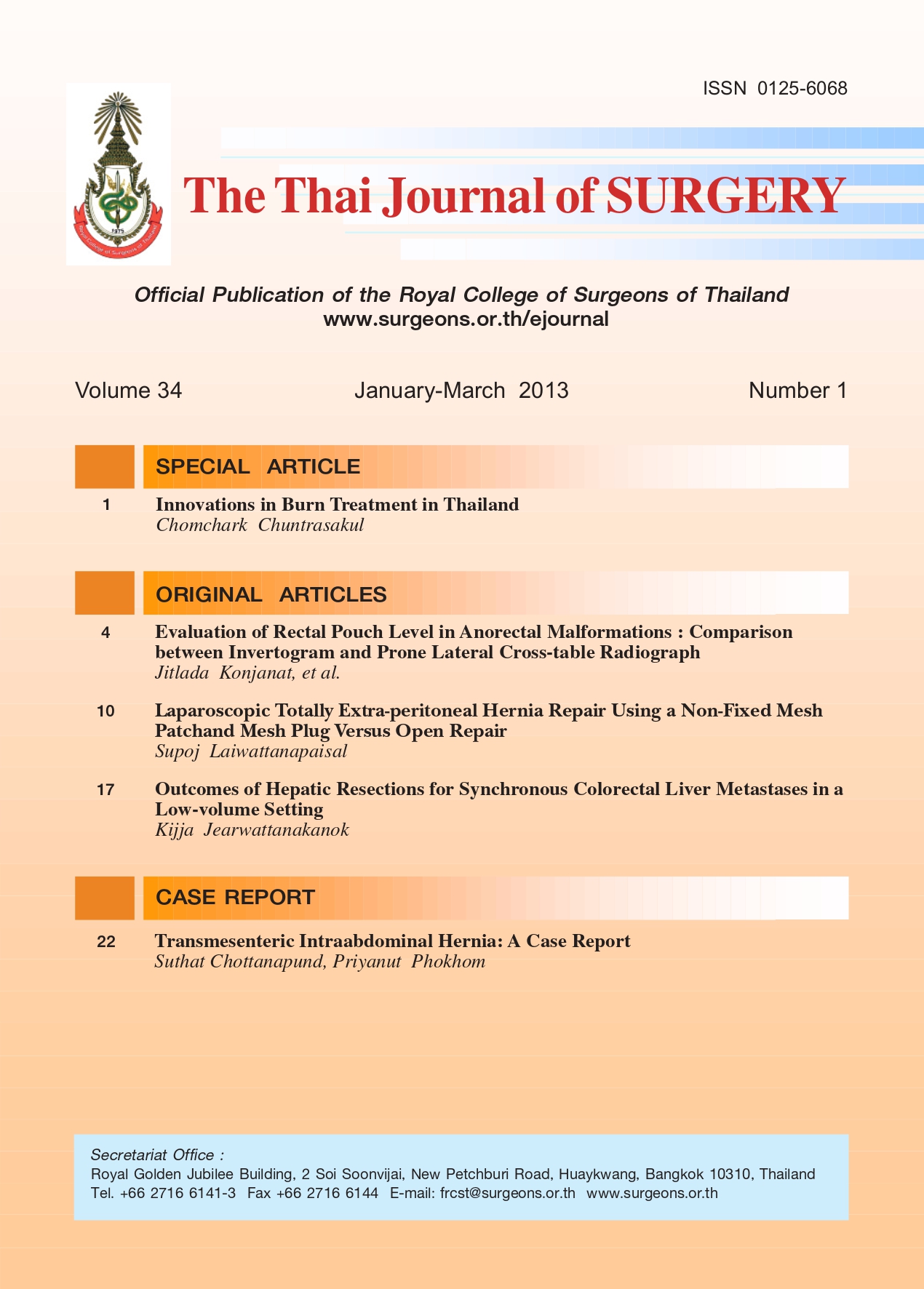Outcomes of Hepatic Resections for Synchronous Colorectal Liver Metastases in a Low-volume Setting
Keywords:
colorectal cancer, liver metastasis, hepatic resection, progression-free survivalAbstract
Objective: To assess outcomes of hepatic resections for synchronous colorectal liver metastases in a lowvolumesetting.
Materials and Methods: Medical records of patients undergoing hepatic resections for synchronous colorectal
liver metastases from October 2003 to September 2012 were reviewed. Progression-free survival was estimated with
the Kaplan-Meier method. Risk factors of disease progression were identified and tested using the Cox proportional
hazards regression models.
Results: There were 21 patients who underwent hepatic resection for synchronous colorectal metastasis.
There was no hospital death.Operative morbidity was 38% (8 of 21 patients). Progression was observed in 9 patients,
of whom 5 died. Median progression-free survival was 30 months. Increased Fong’s clinical risk score (HR: 4.03;95%
CI: 1.35 to 11.97), preoperative carcinoembryonic antigen > 200 ng/mL (HR: 5.43;95% CI: 1.21 to 24.40), and
positive resection margin (HR: 9.70; 95% CI: 2.12 to 44.37) were associated with higher risk of disease progression.
Conclusion: Hepatic resection for colorectal liver metastases can be performed in low-volume settings with
good outcomes. Selection of low-risk patients is advised.
Downloads
Published
How to Cite
Issue
Section
License
Articles must be contributed solely to The Thai Journal of Surgery and when published become the property of the Royal College of Surgeons of Thailand. The Royal College of Surgeons of Thailand reserves copyright on all published materials and such materials may not be reproduced in any form without the written permission.



